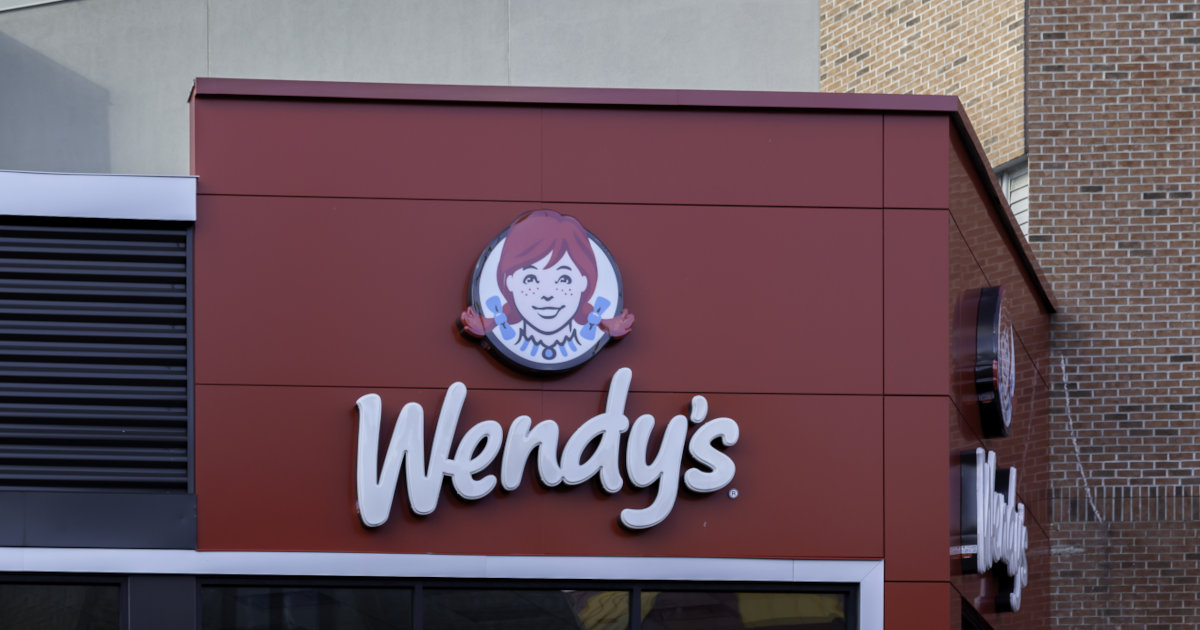Company will eliminate PFAS in consumer-facing packaging in the U.S. and Canada by the end of 2021—a faster timeline than competitor McDonald’s
Public health advocates applaud the fast-paced commitment and call on Burger King to take similar action
WASHINGTON, D.C.—Fast-food chain Wendy’s recently reported that it will eliminate toxic chemicals PFAS (per- and polyfluoroalkyl substances) from its consumer-facing packaging in the U.S. and Canada by the end of 2021. The company also reports that it is establishing a restricted substances list (RSL) in the U.S.
The company stated: “In the U.S., we are establishing a restricted substances list…we anticipate full elimination of per- and polyfluoroalkyl substances, commonly called PFAS, from consumer-facing packaging in the U.S. and Canada by the end of 2021.” (emphasis added)
“Wendy’s is taking meaningful action at a pace we’re thrilled to see,” explains Mike Schade, Mind the Store campaign director. “This announcement proves that it is feasible for large companies to phase out PFAS in food packaging by the end of this year. But now the big question is, will Burger King finally take action? Our testing found that these chemicals are likely being used in packaging at Burger King—including the wrapper for the Whopper. With more than 2 million Whoppers sold per day, this impacts millions of people each week.”
“Wendy’s announcement with its swift timeline is welcome progress as we work to end uses of ‘forever’ chemicals that contaminate drinking water and threaten the health of communities,” said Liz Hitchcock, Safer Chemicals Healthy Families director. “We urge Congress to take further action to protect our families by quickly passing the Keep Food Containers Safe from PFAS Act (H.R. 2727), soon to be re-introduced by Michigan Rep. Debbie Dingell.”
Wendy’s new announcement follows a national study led by Toxic-Free Future and its program, the Mind the Store campaign, which analyzed packaging from six food chains, including Wendy’s, McDonald’s, and Burger King. Testing found that all six food chains sampled had one or more food packaging items that likely contained toxic PFAS, including in a paper cookie bag from Wendy’s. Of the six restaurants sampled from this study, Wendy’s is the fifth to announce actions toward banning PFAS in its food packaging since March 2020. Burger King has not yet announced meaningful action on PFAS in food packaging and advocates have launched a petition urging the company to ban PFAS.
Wendy’s is the seventh-largest fast-food chain in the United States. With annual revenues of $1.73 billion in 2020, there are more than 6,800 Wendy’s restaurants in the U.S., Canada, and 28 countries and U.S. territories worldwide.
Schade concluded by stating, “Wendy’s should expand the ban globally to all other countries where it operates.”
Wendy’s announcement can be found on page 34 of its recently published corporate responsibility report.
Background
PFAS are chemicals used to impart stain, grease, and water resistance to food packaging, carpeting, upholstery, and apparel. Scientists have found links between exposures to PFAS and a wide range of health problems. A consortium of scientists published a scientific statement emphasizing the dangerous health impacts of PFAS and other toxic chemicals in food packaging, noting how easily these chemicals migrate out of packaging. Toxic exposures continue even after the packaging is disposed of. Evidence shows that these chemicals can make their way back to people through drinking water, food, and air. Food crops and gardens can become polluted with PFAS-containing compost, as shown from research demonstrating plants taking up PFAS from soil. Scientists often refer to PFAS as “forever chemicals” because they don’t break down in the environment.
Some state and local governments are moving to phase out classes of toxic chemicals, such as PFAS, from food packaging in favor of safer alternatives. Over the past two years, Washington, New York and Maine have enacted phase-outs of PFAS in food packaging that begin taking effect in December 2022. Federal legislation to ban PFAS in food packaging, the Keep Food Containers Safe from PFAS Act, is expected to be reintroduced by U.S. Representative Debbie Dingell.
Mind the Store’s research finds that top food retailers are increasingly adopting safer chemicals policies to reduce and eliminate harmful chemicals. Over the past two years, 18 food retailers, including Ahold Delhaize, Albertsons, Amazon.com, Cava, Chipotle, Freshii, McDonald’s, Panera Bread, Sweetgreen, Trader Joe’s, and Whole Foods Market, announced steps to reduce or eliminate PFAS in food packaging at their more than 77,000 stores.
MIND THE STORE CAMPAIGN
The national Mind the Store campaign is a program of Toxic-Free Future and challenges big retailers to eliminate toxic chemicals and replace them with safer alternatives. The campaign publishes the annual retailer report card that benchmarks and scores major retailers on their safer chemicals policies and implementation programs. The fifth annual report was released in March 2021. www.mindthestore.org and www.retailerreportcard.org
TOXIC-FREE FUTURE
Toxic-Free Future advocates for the use of safer products, chemicals, and practices through advanced research, organizing, and consumer engagement to ensure a healthier tomorrow. www.toxicfreefuture.org
###
MEDIA CONTACT
Stephanie Stohler
[email protected]

